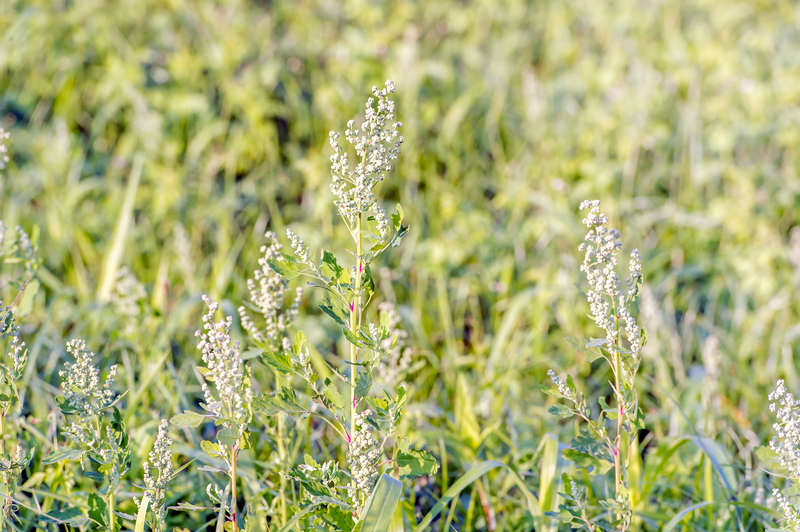The Magic of Compost: Elevating Soil from Waste
Posted on 23/06/2025
In an era marked by increasing environmental consciousness, sustainable gardening and agriculture have become more important than ever. One of the most transformative--and often underestimated--practices is composting. When we look at the vast amounts of kitchen scraps and yard debris we generate daily, it's magical to realize that all this "waste" can be converted into nutrient-rich gold for our gardens. Composting truly is a magical process, turning waste into a product that elevates soil, supports healthy plant life, and restores ecological balance. In this comprehensive guide, we'll uncover the magic of compost and demonstrate how you can help rejuvenate the earth from your own backyard.
What Is Compost?
At its core, compost is decomposed organic matter. Everything from vegetable peels and coffee grounds to autumn leaves and grass clippings can be transformed through the natural work of microbes, worms, and insects. The result is a dark, crumbly, and earthy-smelling material loaded with minerals and microorganisms that enhance soil health.
Composting bridges the gap between waste and productivity. Instead of piling up in landfills where they produce harmful methane gas, organic wastes are recycled naturally. The end product, often called "black gold," is prized by gardeners and farmers for its ability to revitalize soil and boost plant growth.

Benefits of Compost: Why It's More Than Just Fertilizer
1. Waste Reduction
By turning kitchen scraps and green waste into compost, you're not only generating a valuable gardening asset but also significantly reducing the amount of trash that ends up in landfills. Household composting can divert up to 30% of your waste from the landfill stream.
2. Soil Enrichment
Compost acts as a natural fertilizer and conditioner. The organic matter improves soil structure, texture, and fertility. It facilitates better water retention in sandy soils and better drainage in clay soils. The nutrients in compost are released slowly, providing long-term nourishment for plants.
3. Promoting Soil Microbiology
Healthy soil teems with a diverse community of microbes. Compost introduces beneficial bacteria and fungi that enhance plant immune systems and break down organic matter into nutrients. This leads to robust plant health and increased resistance to pests and diseases.
4. Environmental Sustainability
By reducing the need for chemical fertilizers and pesticides, composting supports eco-friendly gardening and farming. Less reliance on chemicals leads to cleaner waterways, healthier soils, and more resilient ecosystems.
5. Climate Change Mitigation
Organic waste in landfills produces methane, a potent greenhouse gas. Composting not only prevents this gas from forming but also sequesters carbon in the soil, contributing to climate change mitigation.
The Science Behind Composting: How Waste Becomes 'Black Gold'
The transformation of waste into compost relies on a balance of four key elements:
- Carbon (browns): dried leaves, straw, paper
- Nitrogen (greens): vegetable scraps, grass clippings, coffee grounds
- Water: maintains moisture and facilitates decomposition
- Oxygen: supplied by turning, promoting aerobic microbes
Microbes, such as bacteria and fungi, are the primary decomposers in a compost pile. As they consume organic matter, they generate heat, breaking materials down rapidly. A well-tended pile can reach internal temperatures of 130-160?F (54-71?C), which not only speeds up decomposition but also destroys most weeds and pathogens.
How to Start Composting: Turning Waste into Soil Enhancer
Choose Your Composting System
- Pile or Heap: Simple and effective; just layer organic materials outdoors.
- Compost Bin: Keeps things tidy and retains heat and moisture for faster breakdown.
- Tumbler: Eases mixing and speeds up the process with consistent aeration.
- Vermicomposting: Using worms (usually red wigglers) to break down food waste quickly, ideal for indoor or small-space composting.
What to Compost (and What to Avoid)
Composting is about balance. Here's a breakdown:
Compostable Materials:
- Fruit and vegetable scraps
- Coffee grounds and filters
- Tea bags (without synthetic fibers)
- Eggshells
- Yard waste: grass clippings, leaves, small branches
- Shredded newspaper and cardboard (avoid glossy paper)
- Hair and pet fur
DO NOT Compost:
- Meat, bones, and dairy products (attract pests)
- Oily or greasy foods
- Pet waste from carnivores
- Diseased plants
- Invasive weeds or chemically-treated plants
Layering and Maintenance
Effective composting relies on alternating layers:
- Start with a bottom layer of twigs or straw for aeration.
- Add "green" nitrogen-rich material followed by a layer of "brown" carbon-rich material.
- Moisten as needed. Compost should feel like a wrung-out sponge: damp, but not soggy.
- Turn the pile every 1-2 weeks to aerate and speed decomposition.
How Long Does it Take?
The magic of compost doesn't happen overnight. Depending on your methods and climate, finished compost can be ready in as little as two months or as long as one year. Fast composting requires regular turning, a good mix of greens and browns, and proper moisture.
Applying Compost: Elevating Your Garden's Soil
Once you have finished compost, you can begin to elevate your soil and fortify your landscape. The benefits of using compost are far-reaching, including:
- Top-Dressing Lawns: Spread a thin layer of compost over grass to fortify roots and improve drought resistance.
- Mulching Trees and Shrubs: Compost acts as a protective mulch, reducing moisture loss and regulating soil temperatures.
- Mixing into Garden Beds: Turn compost into the top 6-8 inches of soil for increased fertility and thriving vegetables.
- Potting Mixes: Incorporate compost with sand and soil for a nutrient-rich container garden blend.
- Feeding Houseplants: Add a sprinkling of fine compost to indoor pots for happier, healthier foliage.
Advanced Techniques: Supercharging the Magic of Compost
Hot Composting
For those eager to accelerate decomposition, hot composting speeds up the process by optimizing carbon, nitrogen, moisture, and aeration. By frequently turning a well-balanced pile and maintaining its moisture, a hot pile can generate finished compost in as little as 6-8 weeks.
Compost Tea
Compost tea is a liquid extract of compost famous for its rapid fertilizing effects and ability to inoculate plants with beneficial microbes. Brew compost tea by soaking mature compost in water for 24-48 hours, then strain and apply the tea as a foliar spray or soil drench for an extra immunity boost.
Biochar and Compost
Mixing biochar (a type of charcoal) with compost creates a potent soil amendment. Biochar improves compost's nutrient-holding capacity and supports microbial life, further elevating the vitality of your garden's soil.
Common Composting Challenges (and Solutions)
- Bad Odor: Usually results from too much nitrogen and not enough carbon. Add dry browns (leaves, straw) and turn the pile.
- Pests: Avoid attracting critters by not composting meat, dairy, or oily foods; maintain a cover over your pile.
- Slow Decomposition: Ensure your pile is moist, well-aerated, and balanced in green and brown materials.
- Pile Too Wet or Too Dry: Add browns to soak up excess moisture or greens/water to moisten a dry pile.
The Broader Impact: Composting and a Circular Economy
The magic of compost extends well beyond individual gardens. Cities and communities around the world are adopting large-scale composting to address food waste and regenerate green spaces. By participating in municipal compost programs or starting a community compost, you help close the loop--creating a circular economy where organic waste becomes a resource, not a liability.

Composting Myths Busted
- "Composting Smells Bad." Properly balanced piles smell earthy, not offensive. Bad smells are usually a sign that something's off (like too many food scraps or not enough air).
- "It's Only for Big Gardens." Even apartment dwellers can compost with worm bins or community drop-off sites.
- "It's Complicated." Composting is as simple as piling up scraps and letting nature do its work. Perfection isn't required!
Conclusion: From Waste to Miraculous Soil
The journey from kitchen waste to lush garden soil is both poetic and practical. Through composting, we unlock the alchemical process by which discarded materials are transformed into the very foundation of life. This process not only reduces waste but also enhances soil, supports biodiversity, and helps combat climate change.
Composting truly elevates the soil from waste, harnessing the power of nature and stewardship. Whether you're an avid gardener, a city dweller, or someone simply looking to reduce your environmental impact, embracing the magic of compost is a powerful step towards a greener, healthier world.
So, the next time you peel a carrot or tidy your yard, remember: within that "waste" lies the seed of transformation, ready to nourish the earth and elevate your soil to new heights!
Latest Posts
Evergreen Escapes: Climbers for Shaded Corners
Start Your Gardening Adventure with These 9 Foundational Tips
Design a Dream Garden with Little Time and Expense
Guide to growing fresh herbs: for culinary use and beyond
Eco-Friendly Wind Defense: Sustainable Practices for Gardens

